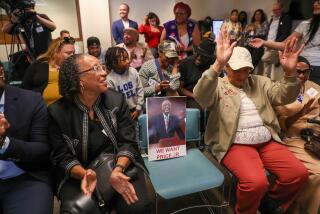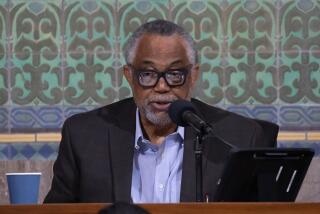Redondo Beach councilman faces 2-year suspension from law for misappropriating money

- Share via
The State Bar of California recommended that a Redondo Beach City Council member be suspended from practicing law for two years for misappropriating half a million dollars in client funds and misrepresenting what happened to the money.
Councilmember Zein Obagi Jr., lead counsel for Obagi Law Group, was first charged by the State Bar’s Office of Trial Counsel in July 2021 with seven counts of professional misconduct. In January, Obagi faced an additional five charges for allegedly seeking to mislead a judge and making misrepresentations to the Superior Court about why the money never made it to his former client.
The initial charges were filed after $1.9 million was deposited into Obagi’s account as part of a settlement agreement around the 2018 sale of a cannabis dispensary, Valley Herbal Healing Center, according to the State Bar filings.
At the time, Obagi was representing the owners and was supposed to transfer $515,000 from the settlement money to one of the owners, Eric Dominguez.
State Bar prosecutors moved Friday to disbar David Lira, Girardi’s son-in-law, and another former employee, Keith Griffin, for alleged misappropriation of client funds.
In a lawsuit filed in 2021, Obagi blamed a different attorney involved in the settlement agreement, saying that attorney was the one responsible for transferring the settlement money to Dominguez. But according to the State Bar, which accused Obagi of additional misconduct for making false statements in his lawsuit, that attorney had transferred money to Obagi with the explicit understanding that he would use some of it to pay his former client.
A dispute between the owners had resulted in Dominguez removing himself from negotiations, and Obagi failed to alert Dominguez and the other owner that representing them both could pose a conflict of interest, according to State Bar filings.
“Every attorney has a duty of undivided loyalty to their clients, free of conflicts of interest,” said George Cardona, chief trial counsel at the State Bar.
Cardona said the State Bar Court found that Obagi breached his duty “both by accepting joint representation of two clients in a matter where their interests conflicted without their informed written consent and by subsequently acting adversely to a former client’s wishes in the same case in which he had previously represented him.”
U.S. District Court Judge Stanley Blumenfeld Jr. didn’t fully explain his reasoning for delaying sentencing for Paul Paradis, a former attorney, until Nov. 7.
The court found that Obagi’s wrongdoing “does not appear to have been caused by dishonesty or corruption” but rather negligence.
“Obagi’s misconduct is substantially aggravated by multiple misdeeds, significant harm to Dominguez and indifference and lack of insight by failing to accept accountability for some of his behavior,” the State Bar filings stated, though it noted his character and lack of prior discipline.
Dominguez was forced “to endure nearly two years of a grueling and horrible ordeal” to have the settlement funds paid, Cardona said.
Obagi told The Times the State Bar Court’s decision supported his initial statement that he “never engaged in any intentional wrongdoing, never acted dishonestly and gained no financial benefits.”
Tom Girardi gave $1 million in payments, gifts to top State Bar investigator, corruption probe finds
The disbarred Los Angeles lawyer funneled more than $1 million in gifts and payments to an investigator at the State Bar and the investigator’s wife, according to a report.
He said he is grateful the court recognized his “extraordinary good character” and agreed his negligence wasn’t done in bad faith, but he called the decision “excessively punitive” because there was no outstanding harm done.
The “worst part of this outcome,” Obagi said, is that he won’t be able to personally see through cases for clients who have faced “discrimination or unlawful retaliation in the workplace.”
The State Bar Court’s recommendation, which must be approved by the Supreme Court, includes that Obagi be put on probation for three years, including two years of a suspension from practicing law until “he provides proof to the State Bar Court of his rehabilitation, fitness to practice and present learning and ability in the general law.”
More to Read
Sign up for Essential California
The most important California stories and recommendations in your inbox every morning.
You may occasionally receive promotional content from the Los Angeles Times.














